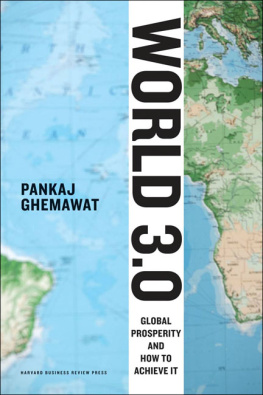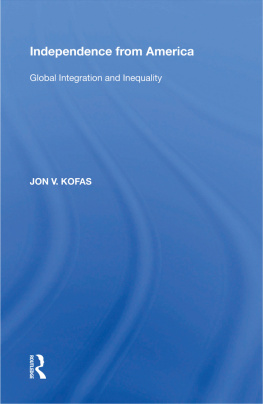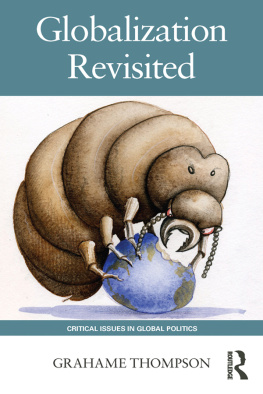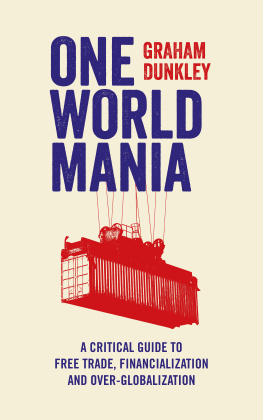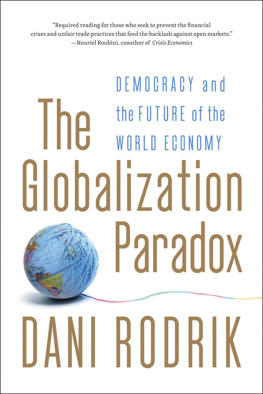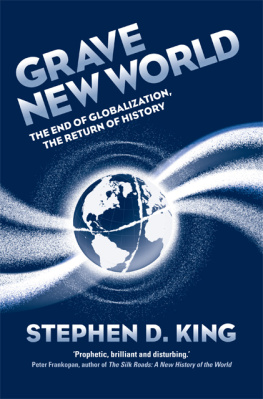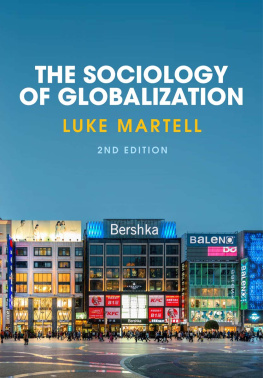World 3.0
GLOBAL PROSPERITY AND HOW TO ACHIEVE IT
Pankaj Ghemawat
Harvard Business Review Press
Boston, Massachusetts
Copyright 2011 Pankaj Ghemawat
All rights reserved
Printed in the United States of America
5 4 3 2 1
No part of this publication may be reproduced, stored, in or introduced into a retrieval system or transmitted, in any form or by any means (electronic, mechanical, photocopying, recording, or otherwise), without the prior permission of the publisher. Requests for permission should be directed to permissions@hbsp.harvard.edu, or mailed to Permissions, Harvard Business School Publishing, 60 Harvard Way, Boston, Massachusetts 02163.
Library of Congress Cataloging-in-Publication Data
Ghemawat, Pankaj.
World 3.0 : global prosperity and how to achieve it / Pankaj Ghemawat.
p. cm.
Includes bibliographical references and index.
ISBN 978-1-4221-3864-9 (alk. paper)
1. GlobalizationEconomic aspects. 2. International economic relations. 3. International trade. 4. Economic developmentInternational cooperation. I. Title.
HF1359.G486 2010
337dc22 2010044993
The paper used in this publication meets the requirements of the American National Standard for Permanence of Paper for Publications and Documents in Libraries and Archives Z39.48-1992.
To Ananya
Who is already a rooted cosmopolitan
Preface
The Great Crisis of 2008 has forced many of us to reexamine our beliefs about markets and globalization. Do propositions about the gains from market integration survive the reality of market failures? Or might we be better offas people are particularly prone to suggest in turbulent timespulling back from rather than pushing forward with integration in order to deal with our problems on a smaller, more manageable scale?
Unfortunately, discussion of these and related questions seems to have broken down. Well-researched policy positions that inspire confidence among economists but stoke fear in large segments of the public aren't good enough. We need to reframe the debate in a way that addresses real concerns and builds broader, deeper, and more robust support for opening up further. This book aims to bring analysis to bear on those fundamental questionsin a way that advances the discussion among people who are interested in building a better world rather than tearing down the present one.
How do I propose to accomplish this? First, by exposing intuitions and fears to hard data. Do you know the extent to which goods and services, capital resources, information streams, and people actually cross national borders in the world we live in? Otherwise, it is hard to take a position on whether to expand or reduce integration that can be described as informed. Do you know how much GDP is estimated to grow if we open up more? How does the impact of globalization on labor markets compare to that of technological change? When you connect up volatile national markets, does that increase risk through contagion or reduce it via diversification? Does trade cause more or less environmental pollution? Sometimes the answers aren't black and white, but we should look at the best available data and analysis, which I have sought to compile here.
Second, by looking beyond economics to incorporate lessons from history, philosophy, and other disciplines, we can better understand the deeply held convictions of othersand perhaps even our own. Consider the calls for protectionism triggered by the crisis. For virtually all of human history, the best possible response to a threatening environment was to gather together those closest to us and build up barriers to keep the chaos at bay. And even today, trust and sympathy decline dramatically with distance. So, while economics teaches us that protectionism does more harm than good, people don't intuitively see it that way, especially when they're scared.
Third, I seek to improve policy and discourse by expanding the policy space itself. The crossfire over globalization is bound up with even more polarized wrangling over regulation. More globalization is widely believed to go hand-in-hand with deregulation, and vice versa. And, worse, globalization and regulation are both framed as take-it-or-leave-it propositions. Thus, the entire policy space collapses down to a single binary choice, which I will refer to in this book as the tug of war between World 1.0 and World 2.0. We have nowhere to aim but directly at each other's faces.
World 3.0's remapping of the terrain suggests a better path forward. Specifically, a more realistic appraisal of both globalization and regulation suggests a path to greater prosperity that involves more market integration as well as limited and targeted market regulation. While greater integration goes against the grain of the tendency to close ranks with neighbors in times of trouble, it does tap into and reinforce the trend through the millennia of increasing prosperity and safety by broadening circles of cooperation. It also has some specific implications for what it means to be cosmopolitan in such a context.
Disentangling integration and regulation as two separate, nonbinary domains of choices opens up countless potential paths toward greater prosperity and security. This is exciting, mainly because it hands us many more tools than most of us realize to improve the world. It also means that we don't have to aim all our arguments at people who believe the exact opposite of what we do. However, it does leave us with the challenge of choosing among a greatly expanded set of options. So, in addition to describing the range of possibilities, I articulate a set of propositions for managing the nexus of integration and regulation.
All of this draws heavily on the work of researchers in many areas, as opposed to being entirely my own creation. But there are disciplines and subdisciplines on which I lean particularly heavily. From economics, on which my doctoral studies were focused, I draw on industrial organization economics' analysis of market failures and their regulation and international economics' empirical studies of how differences and distances affect trade and other kinds of flows. A focus on business, which I have taught, researched, and written about for thirty years, adds realism in the sense that business firms, not markets, mediate most international exchanges. In addition, it underscores the importance of pragmatism and a focus on value. Looking at how businesses think about the gains from cross-border operation extends and enriches the discussion of social gains from opening up.
Ultimately, this book invites you to reexamine your own views about globalization. While you may not end up in the same place that I do, a willingness to revise your view of the world where it doesn't conform to the evidence should get you somewhere interesting. Smart policies can push us in the right direction, but if we change our mind-sets we can get farther. And a crisis can be the best time to get out of the groove of traditional thinking.
Acknowledgments
Behind this book is a journey that has stretched out over a long period of timeand that has drawn on the work of hundreds of people. While most of these debts are acknowledged in the endnotes, there are at least some that I should recognize here. Steven Altman, formerly my student at Harvard Business School and now a valued associate, provided invaluable help with the research and writing, particularly for . Jordi Olle was of great help with the research as well, and Seth Schulman, my editor, with the challenge of shaping a jumble of complex ideas into a book. Antonio Argandoa, Fariborz Ghadar, Thomas Hout, Sebastian Reiche, Willem Van der Geest, and three anonymous reviewers provided comments on or assistance with recent drafts of all or part of this book. Susana Minguell helped suggest the title and secure permissions and endorsements, and Marta Domenech supervised the preparation of the manuscript. I am also greatly indebted to Harvard Business Review Press for the job that it has done with this book, with particular thanks to Melinda Merino, and to my agent, Helen Rees, for leading me there. Finally, IESE Business School, under Dean Jordi Canals, has proven to be a wonderfully supportive environment for pursuing a project whose scope, broad to begin with, kept on expanding.

